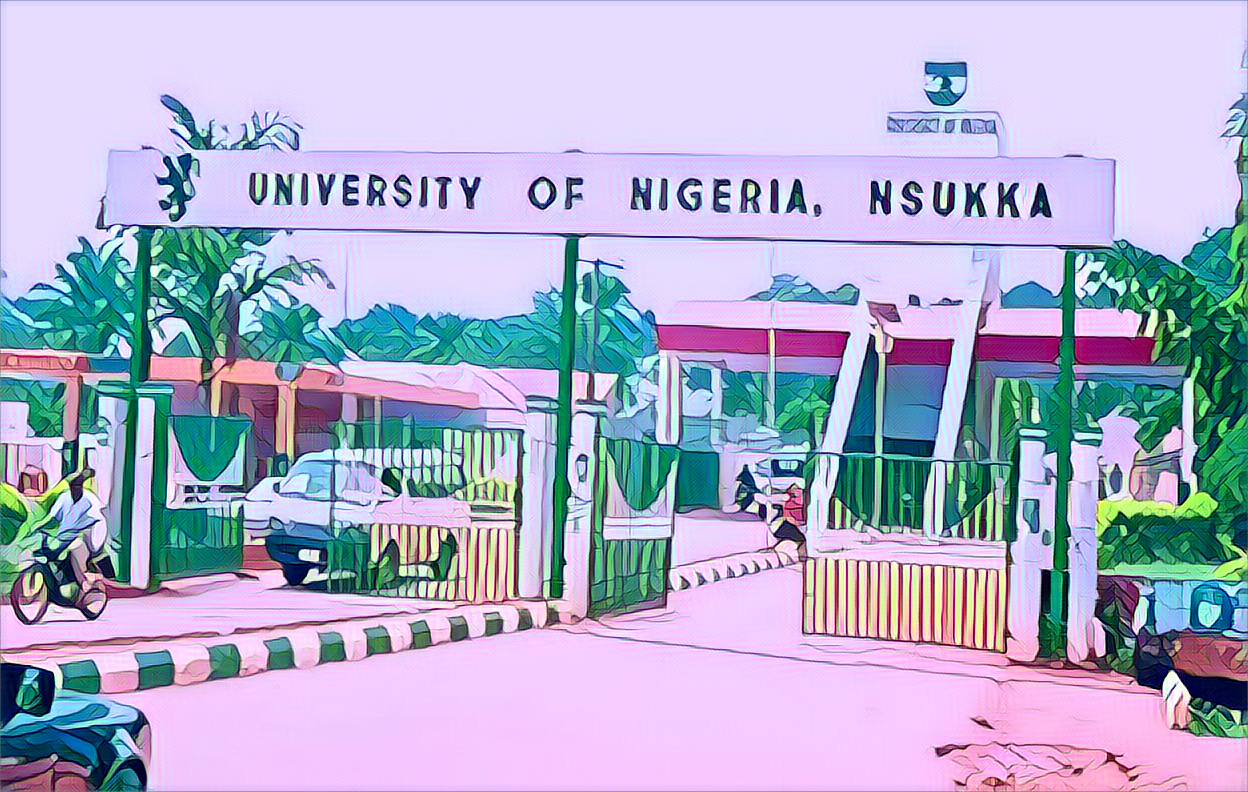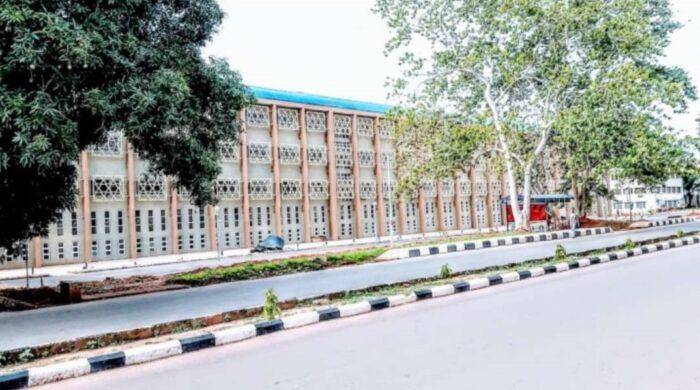 |
| University of Nigeria Nsukka First Gate |
Historical Foundation and Development
The University of Nigeria, Nsukka (UNN) holds a distinguished place in Nigerian higher education history. Established in 1955 by Dr. Nnamdi Azikiwe (who later became Nigeria's first President), it was formally opened on October 7, 1960, coinciding with Nigeria's independence celebrations. The university was conceived as a land-grant institution modeled after the American educational system, making it the first autonomous and indigenous university in Nigeria.
The planning phase involved international collaboration, with advisors from both the United States and the United Kingdom conducting site surveys and feasibility studies in 1958. Key figures included Dr. John A. Hannah, President of Michigan State University, and J.W. Cook, Vice-Chancellor of the University of Exeter. Their recommendations emphasized creating a university focused on serving Nigeria's practical needs and societal problems.
During the Nigerian Civil War (1967–1970), the institution was temporarily renamed the "University of Biafra" but reverted to its original name in 1970. The federal government took over its administration in 1973.
Mission and Vision of University of Nigeria Nsukka
Vision Statement:
UNN aims to be a globally competitive, research-focused university that responds to societal needs while delivering world-class education and knowledge. It strives to be more than an "ivory tower" by actively engaging with community and global challenges.
Mission Statement:
The mission is to place UNN at the forefront of research, development, innovation, knowledge transfer, and human resource development globally. This is achieved while promoting core values that "restore the dignity of man".
Strategic Goals:
UNN's 5-point agenda includes:
- Offering quality academic and professional programs.
- Developing a student-centered, technologically advanced teaching and research environment.
- Building an intellectual and cultural center for promoting new ideas and partnerships.
- Promoting staff and student welfare.
- Pursuing professionalism, academic freedom, integrity, and social responsibility
Academic Structure and Campuses
UNN operates four campuses across southeastern Nigeria:
- Nsukka Campus: The main campus, housing faculties such as Agriculture, Arts, Biological Sciences, Education, Engineering, Pharmaceutical Sciences, Physical Sciences, Social Sciences, Veterinary Medicine. Vocational and Technical Education.
- Enugu Campus (UNEC): Hosts faculties like Business Administration, Environmental Studies, Law, and Basic Medical Sciences.
- Ituku-Ozalla Campus: Home to the Teaching Hospital and faculties of Dentistry and Health Sciences.
- Aba Campus: Dedicated to the National Institute for Nigerian Languages.
 |
| UNN Pharmacy Building |
The university comprises 18 faculties and 102+ academic departments, offering more than 108 undergraduate programs and more than 211 postgraduate programs. It is renowned for its research in fields like Astronomy, Agriculture, and Engineering.
Governance and Leadership
The current Vice-Chancellor is Professor Simon Uchenna Ortuanya. The institution has been led by notable academics, including:
Professor Charles Arizechukwu Igwe
Professor Benjamin Chukwuma Ozumba
Professor Bartho Okolo and many others.
The chancellor is His Imperial Majesty, Oba Adeyeye Enitan Ogunwusi Ojaja II, the Ooni of Ife.
Student and Faculty Statistics
According to Times Higer Education, UNN has a student population of over 36,000 (some sources suggest up to 60,000) and employs approximately 1,519 academic staff. The gender ratio is roughly 46% female to 54% male, with about 1% international students. The student-to-staff ratio is 11.4:1.
Notable Achievements and Reputation
- UNN is ranked 1201–1500th in the World University Rankings 2025.
- It was the first land-grant university in Africa which was modeled after the American land-grant system and remains one of Nigeria's top five universities.
- Its alumni include prominent figures like Arunma Oteh (former Vice-President of the World Bank), Godwin Emefiele (former Governor of the Central Bank of Nigeria), and Obiageli Ezekwesili (former Vice-President of the World Bank).
 |
| University of Nigeria Library: Bigger Library in West Africa |
Affiliations and Partnerships
UNN collaborates with institutions worldwide and has affiliations with:
- Institute of African Studies
- Council for Regulation of Engineering in Nigeria (COREN)
- Association of African Universities (AAU).
- Michigan State University (historical partnership during its founding).
Religious and Campus Life
The university hosts diverse religious communities, including:
- Christ Church Chapel (interdenominational)
- St. Peter's Chaplaincy (Catholic)
- Various churches and fellowships like Assemblies of God, Dominion City, and Winners' Campus Fellowship.
- Central Mosque (Muslims)
Student life is vibrant, with over 100 student organizations and cultural activities.
Core Values and Philosophy
UNN's motto, "To Restore the Dignity of Man," reflects its commitment to holistic education, ethical leadership, and societal transformation. This philosophy is embedded in its academic programs and research initiatives, which address pressing global challenges while promoting African traditions and cultures.
Future Directions and Challenges
- As UNN continues to focus on:
- Enhancing digital transformation and technologically advanced learning environments.
- Expanding research output and international collaborations.
- Addressing infrastructure and funding challenges to maintain its competitive edge.
The University of Nigeria, Nsukka, stands as a pioneering institution in African higher education. From its historic beginnings as Nigeria's first autonomous university to its current status as a globally recognized research institution, UNN remains committed to its mission of restoring human dignity through education, innovation, and service. Its multifaceted contributions to academia, industry, and society continue to resonate across Nigeria and beyond.
For further details, you can explore the university's official website or refer to its Wikipedia page.
